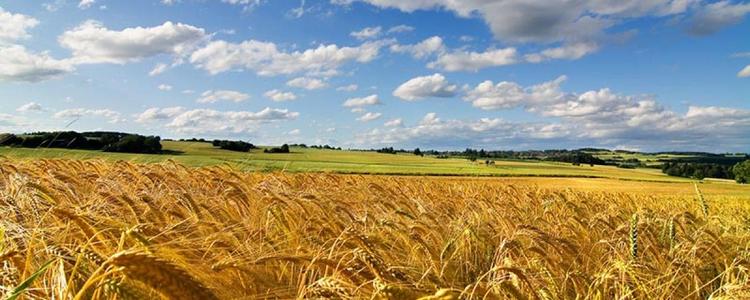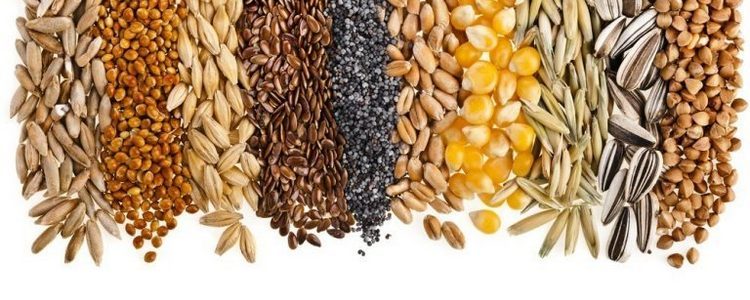News
October 17, 2017 in the exhibition center "KyivExpoPlaza" will be held the seminar "Complex processing of raw materials into food and feed products" and workshop "Topical issues of the regulatory framework, processing, storing and managing quality of grai
October 17, 2017, the exhibition center "KyivExpoPlaza"10.00-17.00, hall 7
I. Seminar "Complex processing of raw materials into food and feed products"
October 17, 2017, the exhibition center "KyivExpoPlaza"
14.30-18.30 hall № 1
II. Training 17.10.2017 G. "Current issues of the regulatory framework, processing, storing and managing quality of grain"
https://www.onaft.edu.ua/download/konfi/Invitation_LABComplEX_26.09.17.pdf
On world markets, cereal prices showed growth
On world markets, cereal prices showed growthMost of the week grain prices were on the rise. Investors covered short positions after falling for wheat and corn, that kept the purchase.
This was reported in the review of FOREX CLUB.
Dynamics of prices reflect the speculative mood in anticipation of the forecasts for the new crop and stocks of grain from the Ministry of agriculture of the United States.
On the Chicago Mercantile exchange CME December contract for wheat rose 0.8 percent to $437,75 100 Bush, corn fell 0.2% to $356,75 100 Bush, soy rose 1.8% to $962 per 100 Bush.
"The market may be volatile, but the proximity of prices to multi-month lows to keep from falling further. Thus, any evidence of reduced supply or increased consumption target increase", — predicts senior analyst at FOREX CLUB Andrey Shevchishin.
December futures can be:
on wheat — $430-445 100 Bush;
corn — $335-370 for 100 Bush;
soybeans — $920-985 100 Bush.
Recall that global cereal production in 2017/18 MG will be 2,049 billion tons, which is 11 million tonnes more than the July forecast.
INTERNATIONAL SCIENTIFIC-PRACTICAL CONFERENCE "TECHNOLOGY OF FOOD PRODUCTS AND ANIMAL FEED"
INTERNATIONAL SCIENTIFIC-PRACTICAL CONFERENCE"TECHNOLOGY OF FOOD PRODUCTS AND ANIMAL FEED"
25 – 30 September 2017, Odessa
http://foodconf.onaft.edu.ua/wp-content/uploads/sites/32/2016/06/Programma-2017.pdf
A seminar devoted to the discussion of the advantages and difficulties associated with the transition to the best standards of animal welfare in the poultry industry (EBRD)
A seminar devoted to the discussion of the advantages and difficulties stand\associated with the transition to better standards of animal welfare in the poultry industry (EBRD)Friday 19 may 2017, 09:30-13:30
Office of the Bank, 3rd floor, vul. Antonovich, 46, Kiev.
On behalf of the European Bank for Reconstruction and Development (EBRD), I have the honour to invite you to a seminar devoted to the discussion of the advantages and difficulties associated with the transition to the best standards of animal welfare in the poultry industry.
Animal welfare is becoming a global challenge. In recent years a growing public interest in this matter, which in turn leads to changes in consumer preferences, particularly in developed countries. As a reflection of these changes is developing legislation regarding animal welfare in the EU, setting an example to other countries and laying the Foundation for future changes. Animal welfare is becoming too serious issue for many producers to ignore it, because they need to respond to pressure from consumers both at home and in international markets, as in the case of exporters. This is especially true for poultry, where the pressure to improve existing standards of production are felt very strongly.
The EBRD is the first international financial organization that has introduced a mandatory criteria of animal welfare in relation to the projects that we funded. Thus, we closely monitored the above mentioned changes and evaluate their possible impact on the business. The Ukrainian poultry industry has serious untapped potential, especially in foreign markets; however, there are a number of issues that need to be addressed, to be able to fully realize this potential, among them questions of standards of animal welfare. If Ukrainian producers expect to be competitive abroad, you need to seriously examine the question of the transition to animal husbandry systems associated with improved standards of animal welfare.
The event, organized jointly with the Union of poultry breeders of Ukraine and Humane Society International, aims to raise awareness on issues of animal welfare in the industry and to provide a platform to discuss the various benefits and difficulties associated with the transition to the best standards. We would be very grateful if you are able to take part in the seminar. Please confirm your participation by contacting us on the contact details given below. Also for your information the attached provisional programme for the event.
Please confirm your participation until 3 may 2017 by replying to this message or by telephone +38 (067) 721 40 00, +38 (066) 722 98 74, +38 (097) 132 21 71
Contact person: Lina beetle; e-mail: zhukg@ebrd.com




